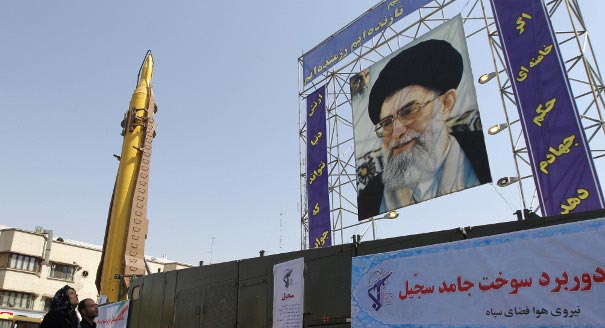The presidential elections results in Iran don’t allow to expect a dramatic change in its nuclear program. President-elect Hassan Rowhani has to follow the nuclear logic of Iran, according to which “the era of suspension is gone.”
Yet a slow progress can be achieved. The news agency RIA Novosti quotes a Russian diplomat close to the negotiations on the Iranian nuclear program, who argues that “it cannot be excluded that agreements can be achieved on some issues, but I do not think that it will happen soon. This is the process in the framework of which the Iranian side has developed its arguments. This cannot be changed quickly.”
A slow progress cannot be a satisfactory solution, because it will result in a time lag between Iran’s nuclear program reaching new technological levels and the adoption of the transparency measures in this field. In previous cases this time lag enabled Iran to covertly build nuclear facilities such as the Fordow Fuel Enrichment Plant.
So, there is an urgent need to accelerate the dialogue between Iran and the IAEA on the former’s nuclear program. This would allow to shorten that time lag and make it impossible for Iran to conduct nuclear activities that would be unknown to IAEA.
A speed-up of this dialogue is possible if technical issues are separated from the political agenda with the purpose of tackling realistic tasks on both tracks. The IAEA-Iranian dialogue should be safeguarded against political interferences as much as possible. The nuclear issue should be excluded from the political dialogue between Iran and other countries.
It would have a positive effect if people directly and indirectly involved in the dialogue on the Iranian nuclear program avoided any kind of threats in their statements (inside and outside of Iran). Iran should not have the impression that its nuclear program facilities are threatened and can be stricken with conventional and cyber means or become the object of a terrorist attack. In the same way, other countries should not get the impression that they are threatened by Iran’s military capabilities.
The segregation of technical and political issues in the dialogue with Iran and the restraint of all the sides of this dialogue could create a positive atmosphere for its acceleration. The main goal of the dialogue ought to be full transparency of the nuclear program of Iran. Suggesting more ambitious goals like suspending the program or preventing nuclearization of Iran will lead this dialogue to nowhere and finally allow Iran to become a virtual nuclear weapon state. As for now, the transparency goal can be regarded as the one and only way to keep moving along a positive track.
